Do you ever find yourself saying “I hate my mom,” or “I hate my dad” or worse even “I hate my parents”? Although it is normal to dislike our parents during our teen years, if you are struggling with having positive feelings towards your parents in your adulthood, then it’s time to talk about it.
We are all supposed to love and respect our parents. But that is only true for healthy and well-functioning families. For children like us who have been raised in toxic, dysfunctional families, hating our toxic parents comes naturally to us. But the important question we need to ask now is how to overcome this hatred and find forgiveness for our own inner peace.
I Hate My Mom

I hate my mom. I truly do. And I get what you feel inside. It’s not hatred that you feel, rather it is the pain of not being good enough for her. For her love, admiration, affection and respect. You don’t really hate your mom, you just want her to love you as a mother should. Like you have read in stories, seen in movies or seen how your friends’ mothers treat them. You just want them to appreciate you rather than treat you like a mistake. You just want them to care about you and show you that they love you. Instead you hate her. But it’s not your fault. Studies show that the relationship quality between a mother and her infant can significantly affect the child’s mental and emotional health.
Related: The 10 Worst Types Of Moms: Moms That Suck
All you ever wanted was unconditional love, acceptance and support. Instead, what you got was abuse and neglect. The person who was supposed to build you up, broke your sense of self-esteem and self-worth. Not being loved by the one person who brought you into this world can change you… for the worse. I get it. But the sad truth is, not all women can become good mothers. I know it’s not the best or most diplomatic thing to say, but the truth is often harsh.
And I Hate My Dad

And fathers! Oh man, fathers are a whole different deal altogether. He doesn’t understand you, constantly commands you and you feel trapped in an infinite loop of arguments and conflict. And these conflicts lead to the dissolution of the emotional connection you share with him. Hatred is a strong and complicated feeling that stems from a variety of reasons. But the most important reason we start hating our father is because of all the lack of support. Your father is supposed to keep you safe, guide you in the right direction and love you unconditionally. But when you realize that your dad is abusive and exploitative, you can’t help but hate him. Your hatred is born out of your disappointment and your need to be loved and valued. In fact, research shows that “Father absence” is related to “negative child and adolescent outcomes” leading to behavioral difficulties, early sexual activity, teenage pregnancy and life adversity.
It can be even more baffling and damaging when you see your dad or your mom behave normally and positively with others, or even with your siblings, but when it comes to you, their behavior might seem completely different, negative and toxic. But this has more to do with parenting styles and childhood attachment patterns your parents had than it has to do how they feel towards you.
Related: A Recent Study Reveals Fathers Have More Influence in A Daughter’s Life Than Mothers
Why Do I Hate My Parents?
The problem is we see our parents as superheroes or angels. People who cannot do any wrong. But we fail to realize that they are also human beings, people who are flawed and imperfect, just like you and me. People who have personality issues (read narcissist), mental health problems, issues with their own toxic parents, work stress and the daily challenges of life. Some parents may not be the most equipped to take the responsibility of a child. No. I am not defending what your parents did to you or saying that you shouldn’t say things like “I hate my mom,” or “I hate my dad.” All I am saying is to have some empathy and understand what they were going through too.
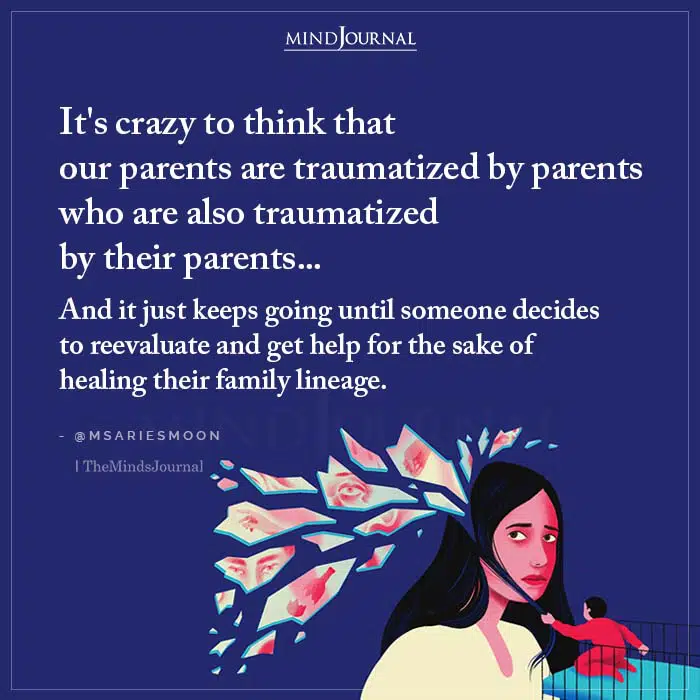
This is not about diminishing your struggle and pain one bit. Rather it is about helping you understand why you should start forgiving them and yourself, instead of repeating “I hate my parents” to yourself every single day. Because at the end of the day, the more you hate them, the more you will hate yourself.
Here are some of the common reasons why a child, a teen or even an adult might say “I hate my parents” –
- Parental rejection
- Authoritarian or uninvolved parenting styles
- Insecure, avoidant or disorganized attachment styles
- Psychological or emotional abuse
- Neglect or abandonment
- Repeated conflict, family violence or toxic family dynamics
- Differing personalities, values, morals, choices and lifestyles
- Traumatic events
- Mental health issues
- Conflicting expectations regarding family responsibilities
- Lack of personal boundaries
- Lack of emotional connection
Related: How Parents Cause Mental Health Problems In Children
Apart from these, there can be many other parental factors that can make someone hate their toxic parents, such as –
- Constant criticism, blame, disrespect or comparison
- Extreme control or exploitation
- Unrealistic demands
- Not acknowledging child’s emotions
- Lack of privacy and respect
- Lack of parental support
- Narcissistic behavior and repeated manipulation
- Constant misunderstandings
- Child’s need for independence
- Parental failure to provide safety, affirmation, attention or reassurance
These factors can make a child experience indescribable emotional pain and suffering that can not only affect their self-esteem in adulthood, but also their adult relationships. As a result the child may harbor negative feelings towards their parents and start saying things like “I hate my dad”, “I hate my mom,” or “I hate my parents”.
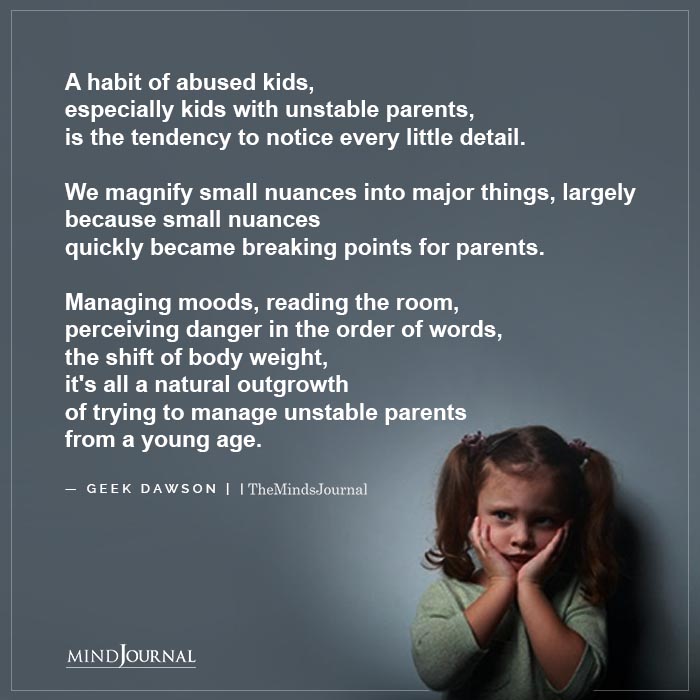
Should I Hate My Parents?
No. Despite how strongly you may disagree with me, you should not hate your parents. Hatred is a strong negative emotion that can affect you greatly and completely change the course of your life. It can do more harm than good. It’s okay not to like your parents, but can be too damaging to your relationship. The thing about life is we realize the true value of someone when they are not in our lives anymore.
Although a morbid thing to say, our days on this planet are numbered. None of us are born immortals. I believe it is better to try and improve your relationship with your toxic parents now, rather than regretting it later. Yes, I know this is not what you want to hear right now, but they are still your parents. Dysfunctional or not, it IS your family. And despite how hard you try, you can never control how your parents will behave or react. The only thing you can actually control is your own behavior and life.
Related: Parental Gaslighting: How Parents Gaslight Their Children And Break Their Hearts
How To Stop Hating Your Mom Or Dad
So if you find yourself saying “I hate my parents” more than you should, then here are some things you should try –
1. Acknowledge your pain and negative emotions
If you observe yourself gravitating towards thoughts like “I hate my parents”, or “I hate my mom,” or “I hate my dad”, then pause and analyze your pain. Your emotions, no matter how negative or difficult they may be, are valid. It is okay to hate your toxic parents for the abuse you have suffered. How you feel about your ordeal is reasonable even if your perspective about the situation is drastically different from your parents. It is crucial that you acknowledge your pain and accept your emotions as they are. Identify your emotions, let yourself feel the pain and focus on healing yourself in healthy ways.
It is true that living in the past or holding on to your pain isn’t going to serve you. You need to let go and move on, but you don’t need to force yourself to do so. Be patient with yourself and trust the healing process. Acknowledge and accept your emotions in a non-judgemental way and let your negative feelings pass naturally. Seeking therapy, practicing spirituality, mindfulness, meditation and self-acceptance can help significantly.
2. Accept your reality
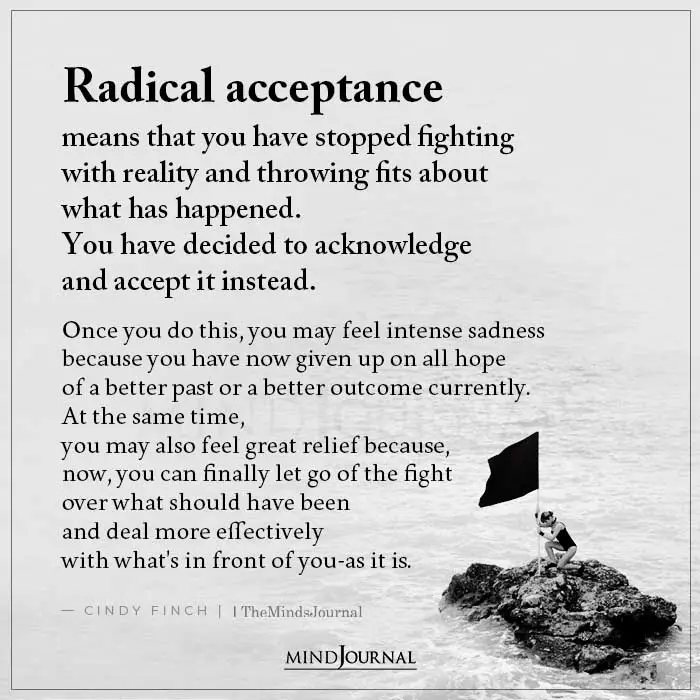
Although it may be really difficult, you need to accept the fact that you can never have the relationship that you desire with your mom or dad. Your equation with your mother or father may be terrible on some days while on some days it may be smooth sailing. Instead of fighting to change or improve it, learn to accept things the way they are. You can only let go once you accept and appreciate the relationship for what it is, accept that it was painful and traumatic and realize that it is okay to feel angry at your parents. What is not okay though is holding on to that anger and allowing it to affect your mental and emotional well-being.
One 2020 study explains that acceptance is “understood as a self-regulation strategy based on an open and welcoming attitude toward one’s own emotions, thoughts, or external events” In fact, research reveals that “Acceptance is integral to several cutting-edge behavior therapies.”
Related: How To Accept Your Parents For Who They Really Are and Love Them
3. Don’t argue, remain calm instead
When you grow up with toxic and abusive parents, you get used to constant criticisms, insults and rebukes. Not only can this eat away your confidence, it can also make you defensive and get into repeated fights and arguments with your toxic parents. So the moment the thought “I hate my parents” pops into your mind, focus on detaching yourself from such negative thoughts and learn to remain calm. Although you may be motivated to argue back, it will only escalate the situation and make it worse. Moreover, engaging in a heated argument will make you feel terrible and leave you feeling guilty about the whole ordeal.
However, when you remain calm, you will be better able to understand your parents and manage your reactions to their behavior. In case you find yourself becoming reactive, walk away from the room or go for a walk outside, breathe mindfully or practice meditation. The more you learn to control your emotions and stay calm, the better you will be able to cope with your parents’ negativity.
4. Learn to forgive

At this moment, forgiveness may seem preposterous, but hear me out. Forgiveness is not about forgetting all the abuse you have endured. It is not about forgetting how truly toxic and narcissistic your mother or father can be. It is simply about letting go of all the pain you are still holding onto in your heart. Regardless of how flawed they may be, you still love your parents, just like they love you, even if they may not show it to you. Forgiveness will allow you to release all the bitterness and resentment inside you and help you find acceptance and inner peace. It will help you let go of all the past trauma, abuse, emotional pain, loss, anger and guilt. It will help you overcome hanging on to negative feelings, embrace positive emotions and look at your parents with love, compassion and empathy. Forgiveness is important so that you can move ahead in peace and heal your inner wounds.
However, forgiveness may not be an overnight process for most of us. So make sure to be patient, put in the necessary effort to reconcile the relationship, focus on your emotional needs and be in a safe mental space. Several questions may arise in your mind and you may wonder whether they deserve any forgiveness at all, but remember it’s not about them. The focus is on YOU!
However, you need to keep in mind that forgiveness is not about –
- Forgetting about the abuse you’ve been through
- Allowing your mother or father to continue their toxic behavior
- Accepting their behavior, whether in the past, present or future
- Pretending that the relationship is fine and the memories don’t exist
Forgiveness may take a lot of effort and patience on your part, but in the end it will be more than worth it.
Related: Escaping the Cycle of Suffering: Why You Should Forgive Your Parents
5. Talk openly about your pain
When you are crippled with deep emotional wounds, it can be nearly impossible to talk about them, especially when you can’t trust anyone to understand your emotions. However, talking honestly about your feelings to someone you trust can have therapeutic effects. You may talk to your partner, siblings, cousins, relatives, friends, teachers, coaches or even a therapist. Sharing your emotional pain can not only help you feel relieved, it can also help you gain a new perspective on your situation. Moreover, suppressing emotions can have negative effects on your mental health.
But talking to your parents about your emotional pain is perhaps the most helpful way to cope with it. Have an open conversation with your abusive parents without blaming them or judging them. The objective is to share your emotions and let them know about how their behavior affects you. You should also focus on understanding their perspective and identify if they are undergoing any problems or mental health issues leading to such toxic behavior. Even if they become defensive or refuse to accept their drawbacks, you will have better clarity about the situation, which will add to your healing process.
6. Believe in your worth & practice self-love
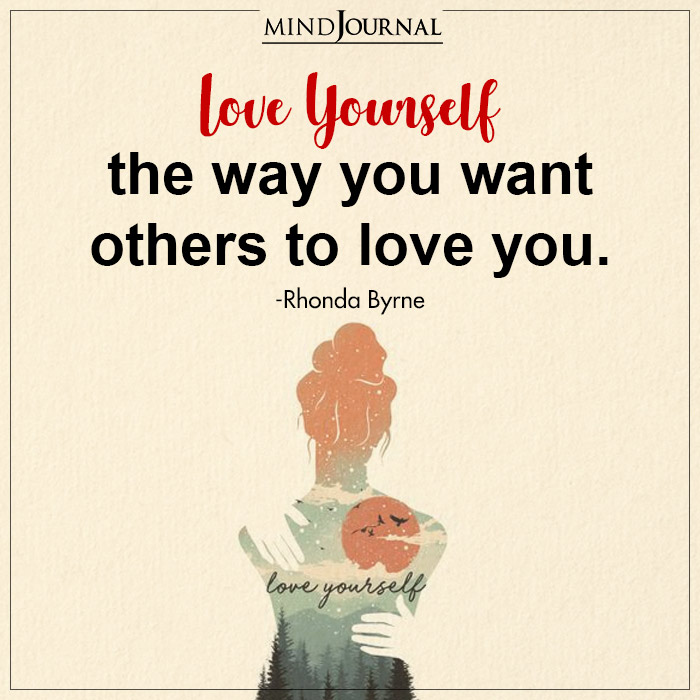
If you want to be able to overcome resentment, let go of all the pain, stop saying “I hate my mom”, “I hate my dad,” or “I hate my parents” and forgive them, then it is crucial that you have faith in yourself and love yourself. Regardless of what your father or mother might claim about you, do not buy into their narrative. Believe in yourself and your abilities, do things that help build your self-esteem, avoid seeking external validation and refuse to indulge in negative self-talk. Tell yourself that it is okay to be imperfect and flawed as long as you work on improving yourself.
It is also important that you practice self-care – eating nutritious meals, getting enough sleep, exercising regularly and avoiding substances. Focus on meeting your needs and appreciate the effort you put in surviving the emotional pain you have been subjected to since your childhood.
Related: How To Build Healthy Relationships Between Mothers And Adult Daughters: 6 Tips
Coping Strategies To Deal With Toxic Parents
Here are some additional strategies that can help you reduce resentment and bitterness towards your parents and deal with them in a more positive and healthy manner:
1. Learn to identify your triggers as it will enable you to prepare for negative situations and intense emotions.
2. Establish clear boundaries with your mom or dad and be assertive about your rights.
3. Take steps to maintain your privacy and your personal space, whether physical or mental.
4. Cultivate empathy as it will help you understand why your parents behave and react the way they do.
5. Seek resources and support from your partner, friends and loved ones as their emotional support can help you find balance and mental strength.
6. Talk to a therapist as psychotherapy can help you deal with childhood trauma and heal emotional wounds.
7. If you believe the relationship can be salvaged, make an effort to mend the relationship by improving communication, trust and positive emotions.
8. In case your parents’ abuse becomes overbearing, it is better to walk away and cut ties with them, permanently or temporarily. Your mental health should take top priority.
Rise Above Hate
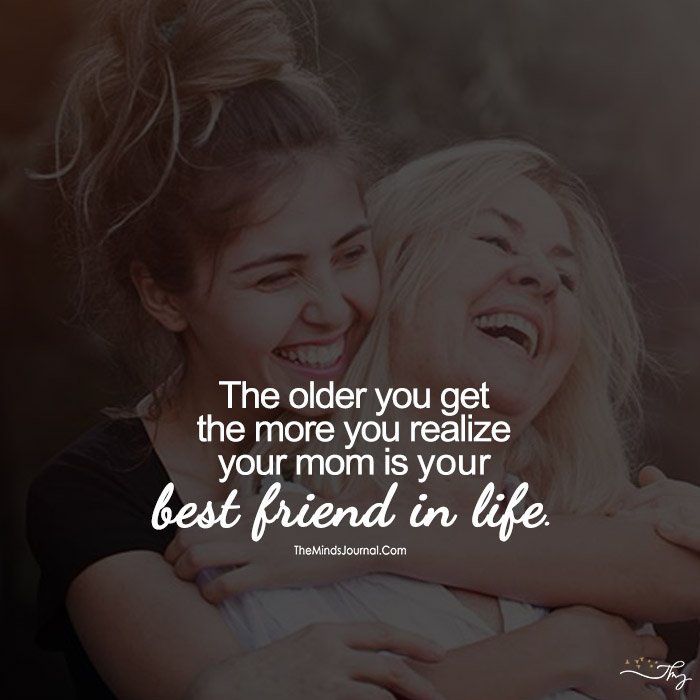
Unfortunately, not all of us may be lucky enough to share a loving relationship with our parents despite what books, movies and society may have us believe. But that is no reason to let hatred dominate and control our relationships and our lives. Growing up in a toxic, dysfunctional family can lead to stress, anxiety, depression and even suicidal tendencies and this is why you need to learn to let go of the pain and hate you hold in your heart.
Follow the steps and strategies mentioned above to overcome hatred and if nothing seems to work, cut all contact with your abusive parent and talk to a mental health professional to seek therapy in order to heal & move forward in your life in a healthy way.
Related: How Working Dads Can Support Working Moms To Build A Closer, Stronger Family
Frequently Asked Questions
What do I do when I have a bad relationship with both of my parents?
Manage the situation in a calm manner. Even if you have failed to resolve the issues, take care of yourself, remain hopeful about the future, and talk to someone you can trust.
How do I define who I am after letting go of my relationship with toxic parents?
Realize that your parents or your past trauma don’t define you. You can be whatever you want to be. Introspect and find out your innermost desires to become your authentic self.
What are safe topics of conversation to use with toxic parents?
If you want to have a conversation with your toxic parents without triggering them, don’t mention anything that might hurt their ego or challenge their belief system.
My friend has toxic parents. How do I help her?
Make them feel safe and let them speak without judging them. Don’t force your decisions on them. Offer support and encourage them to talk to a certified mental health professional.
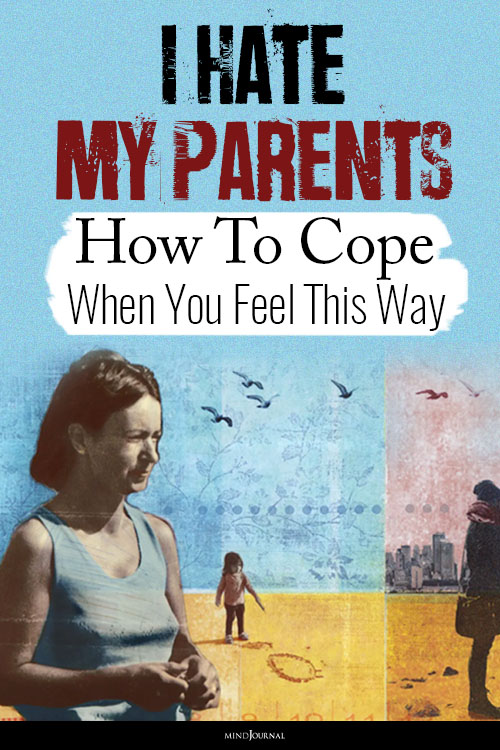
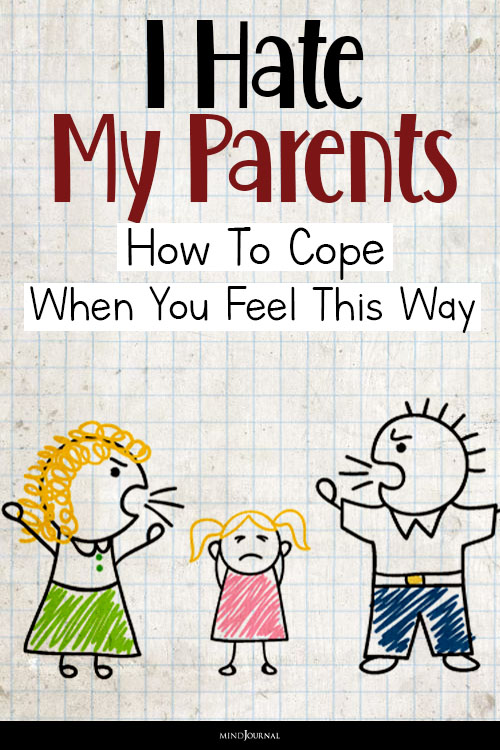
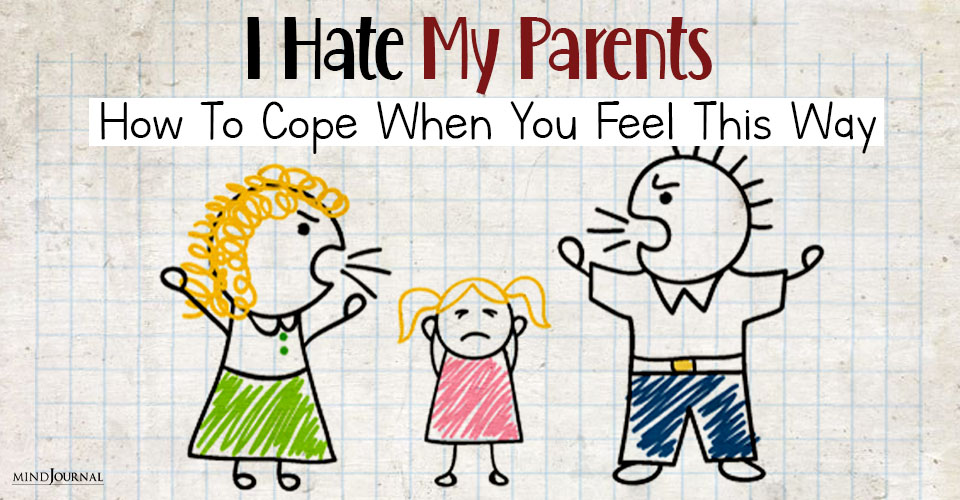






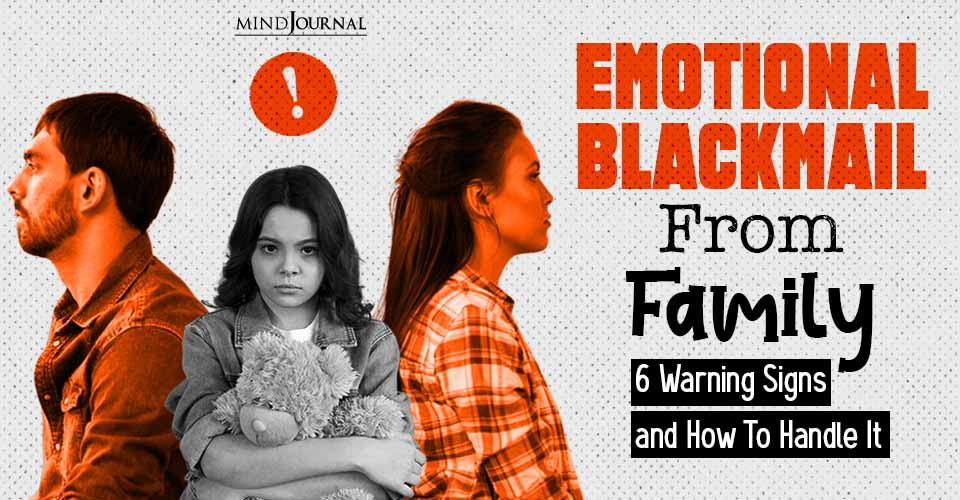
Leave a Reply
You must be logged in to post a comment.